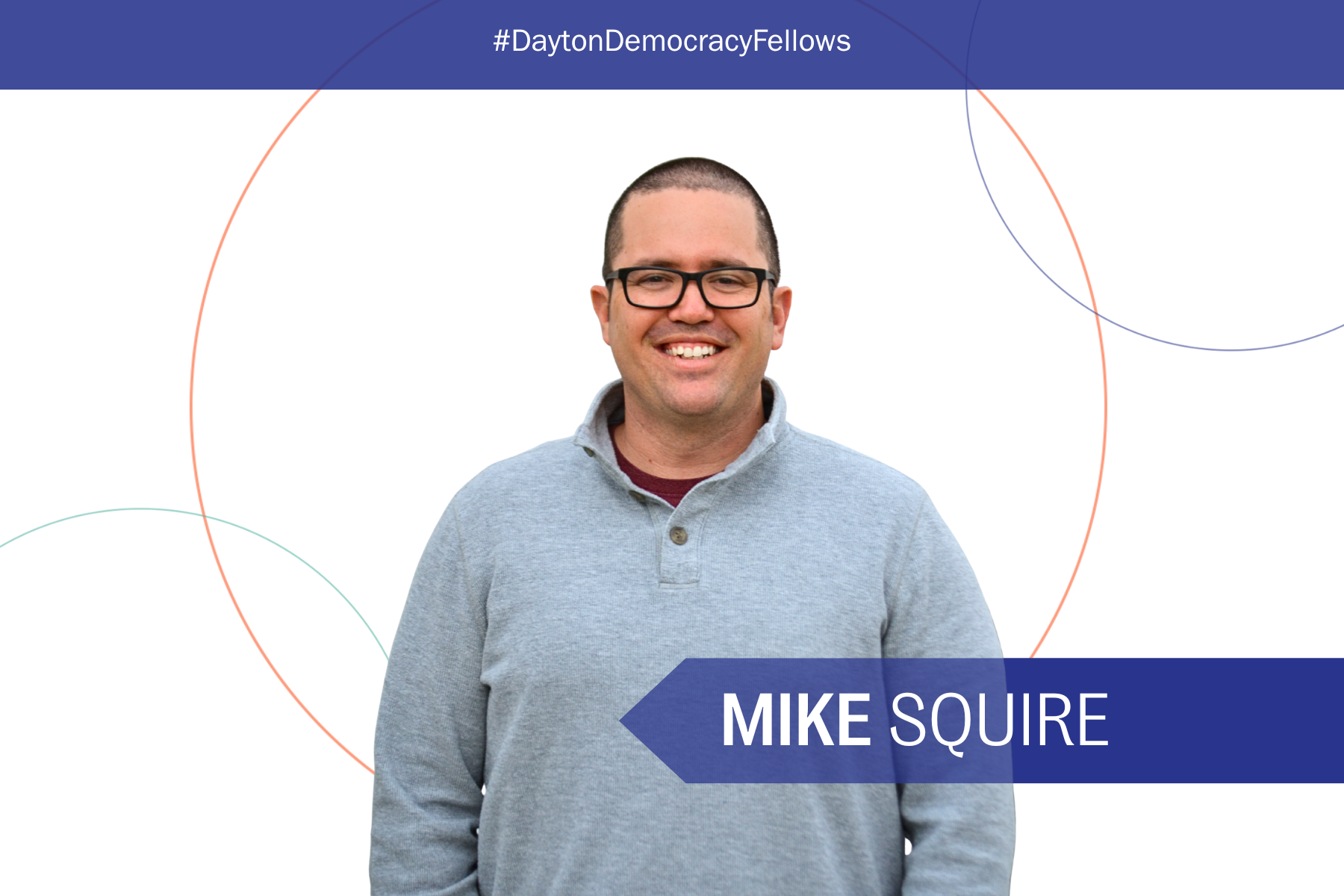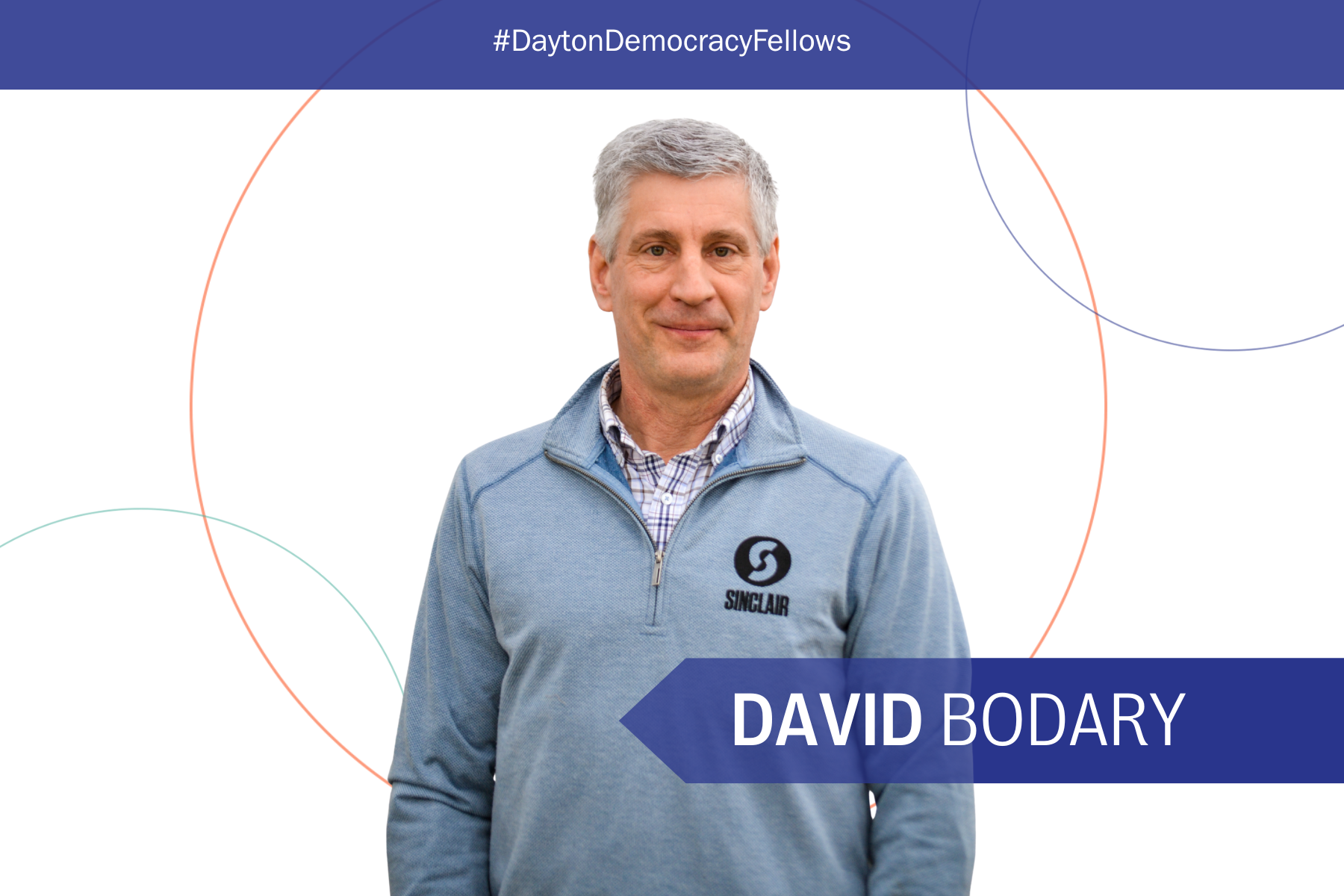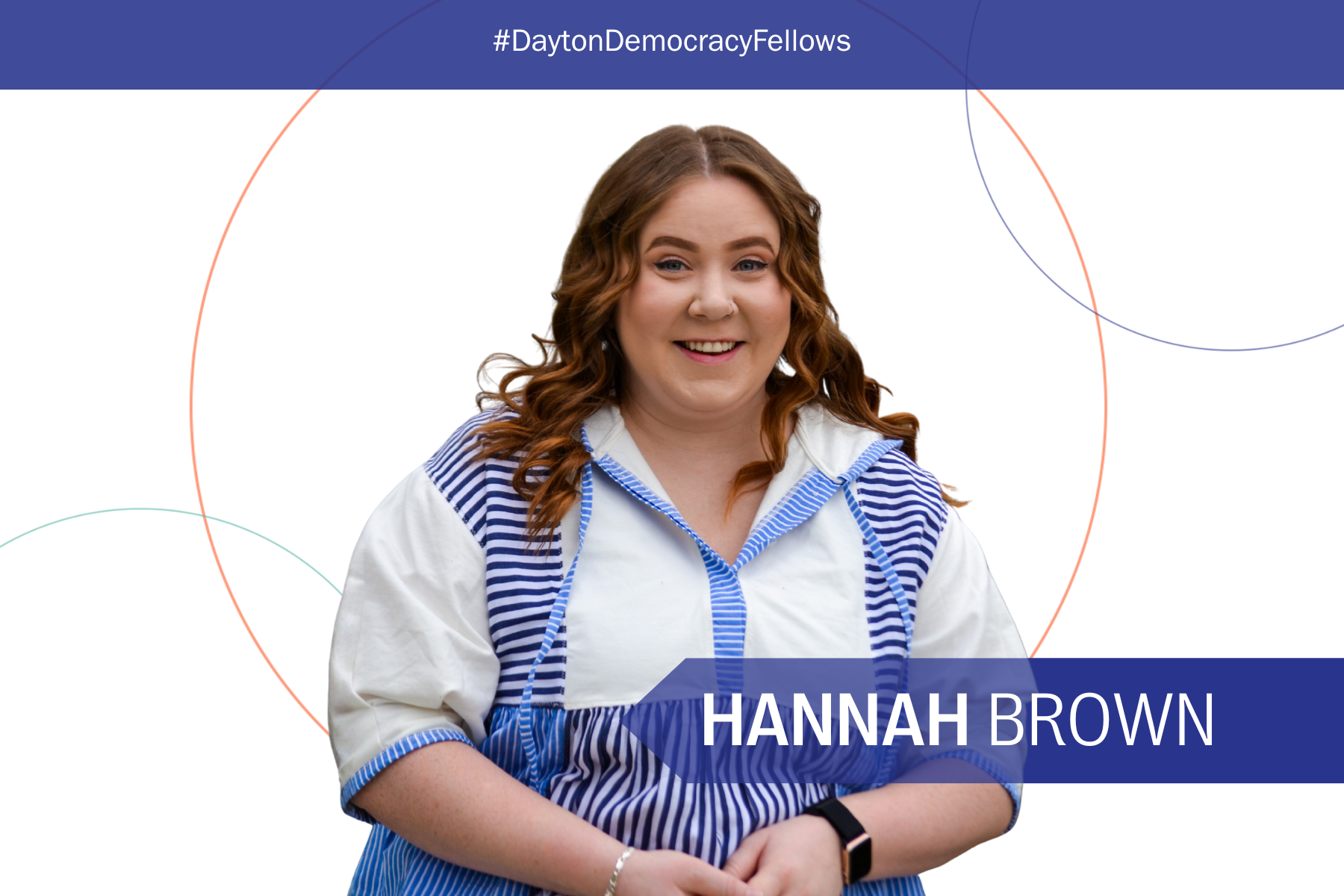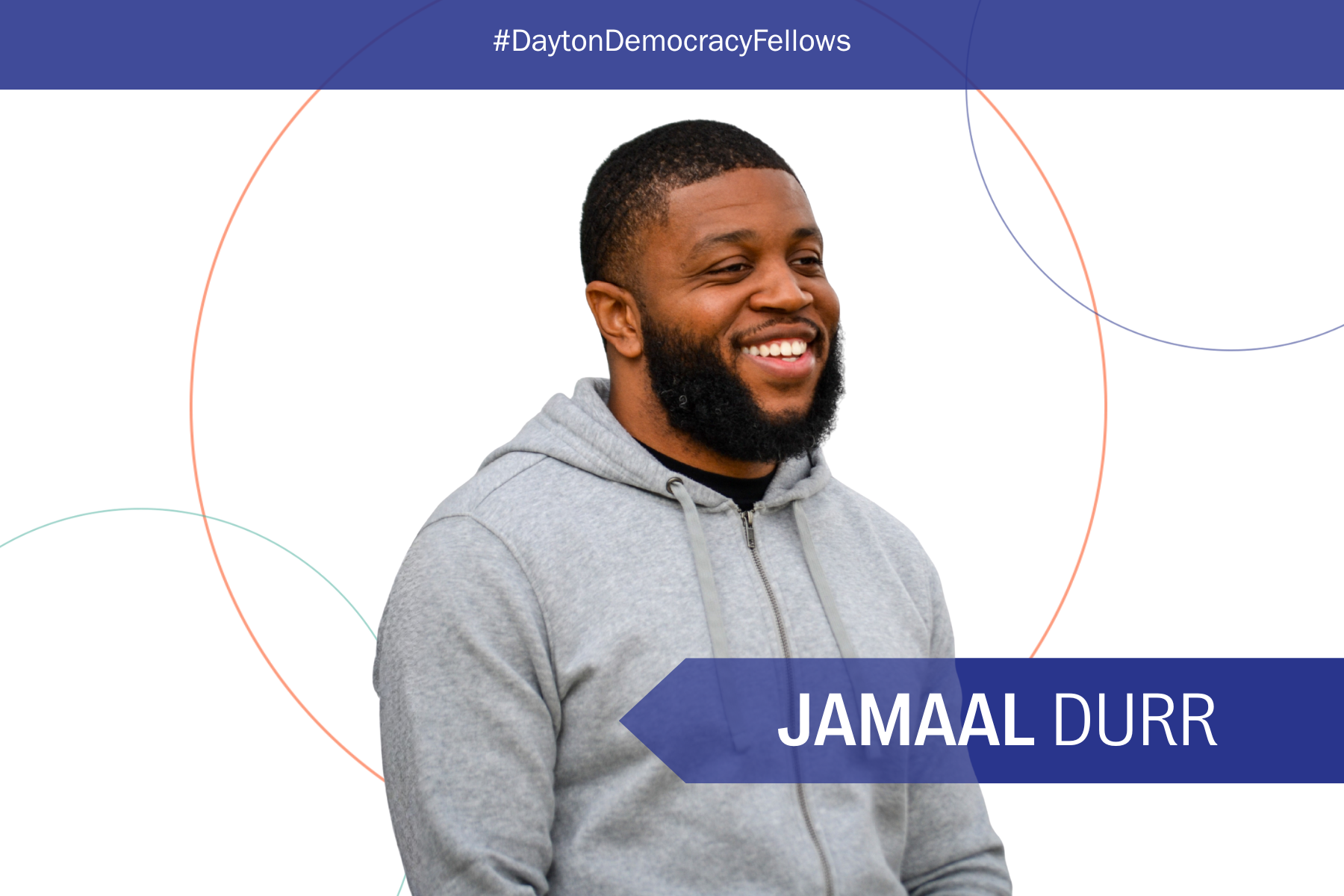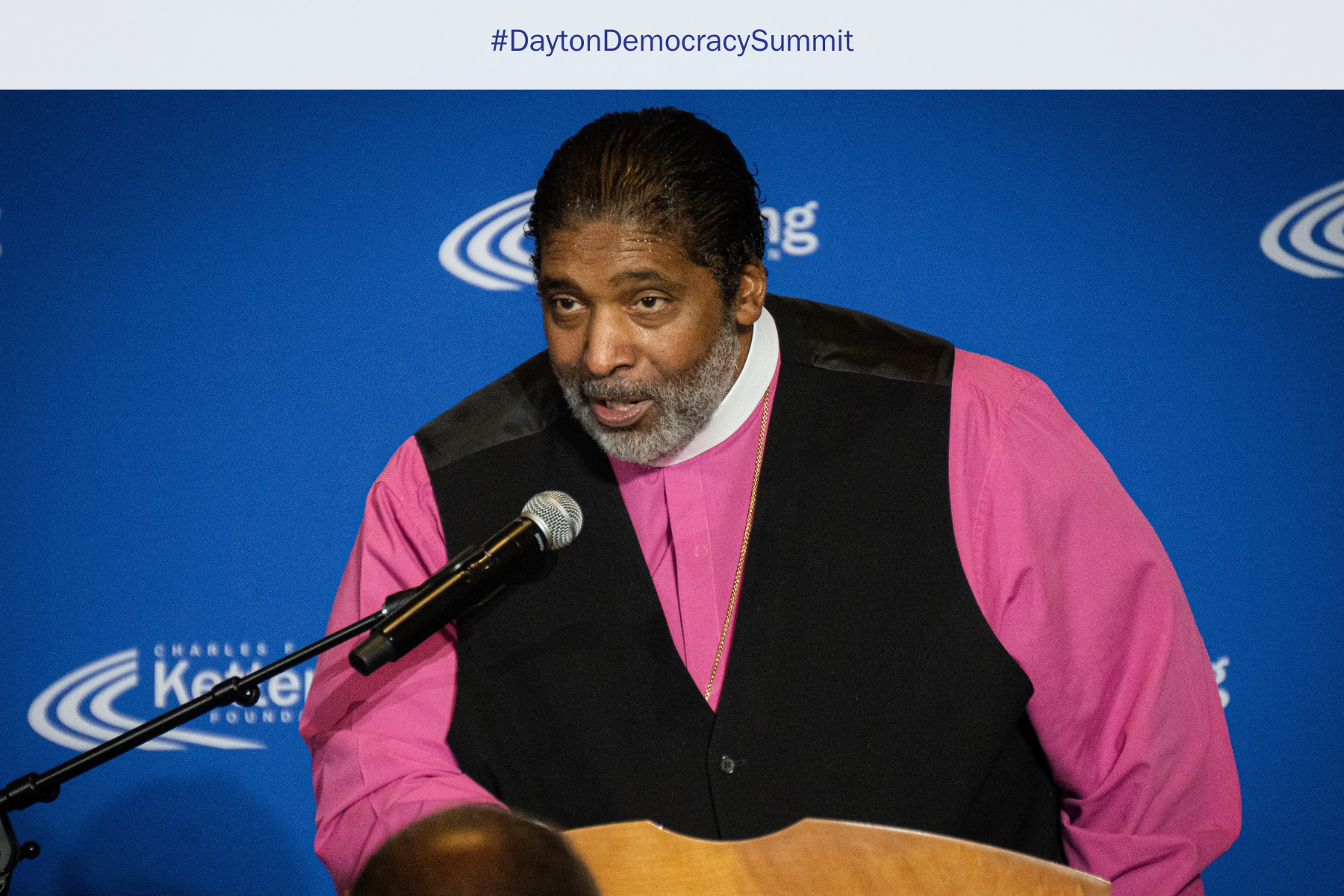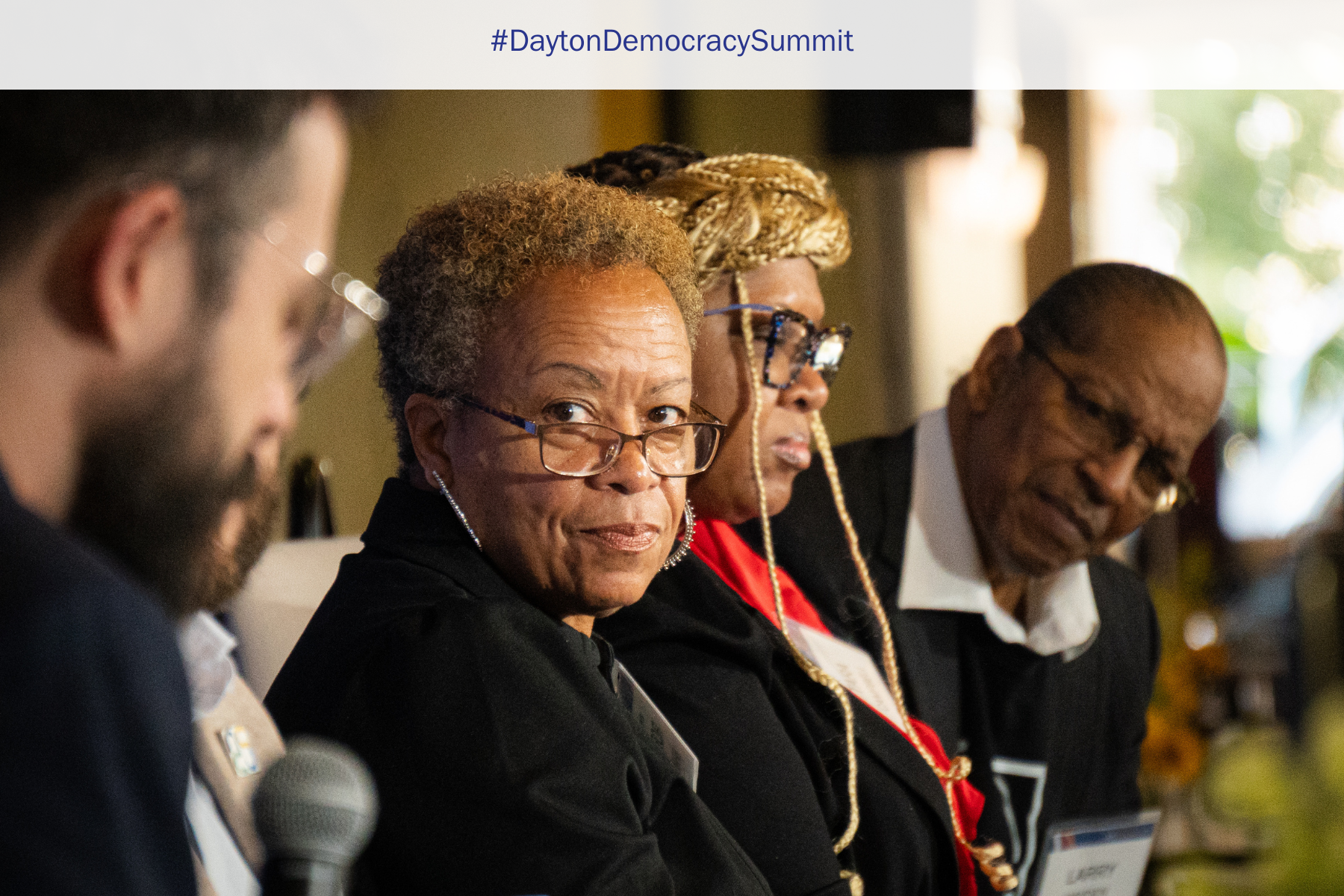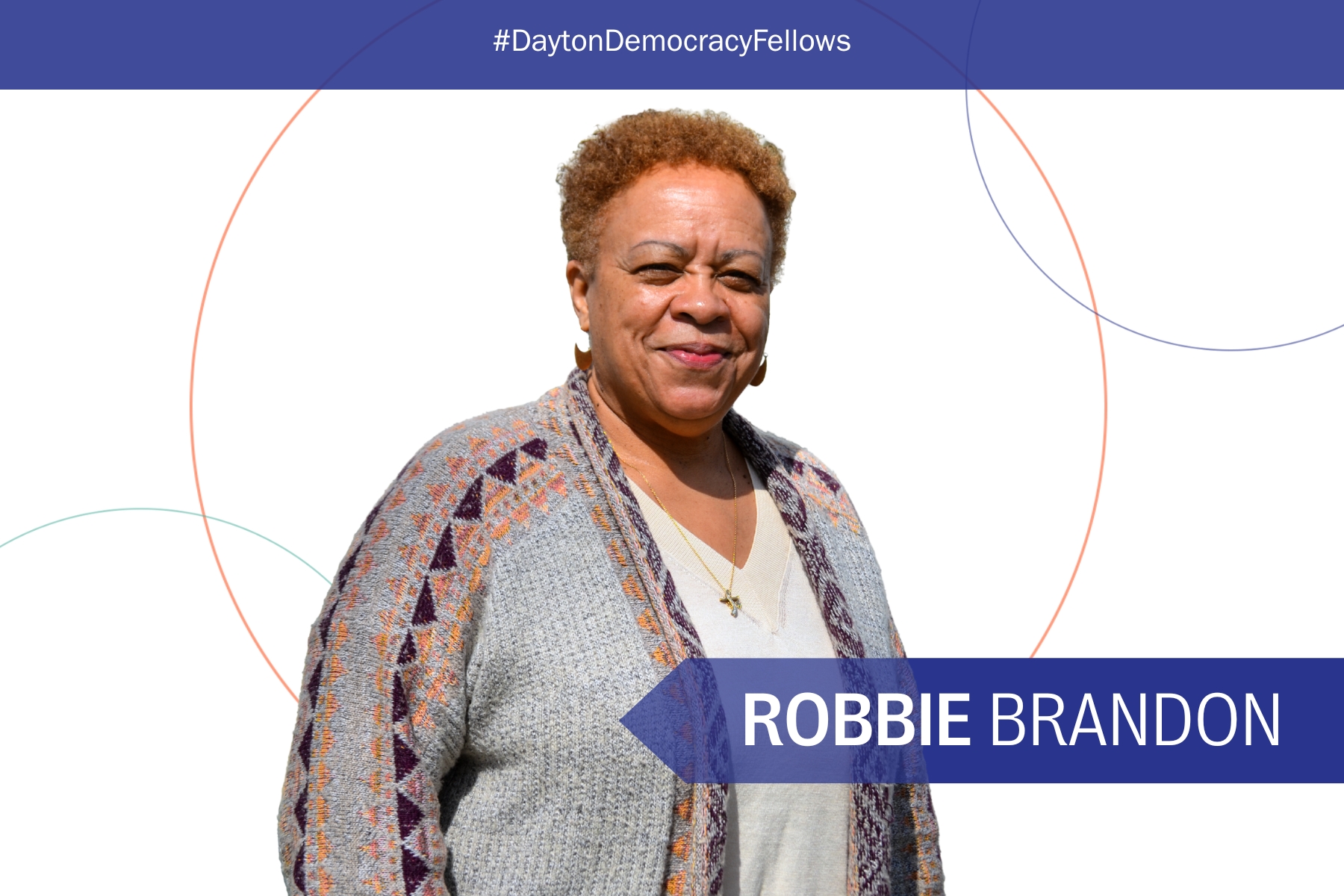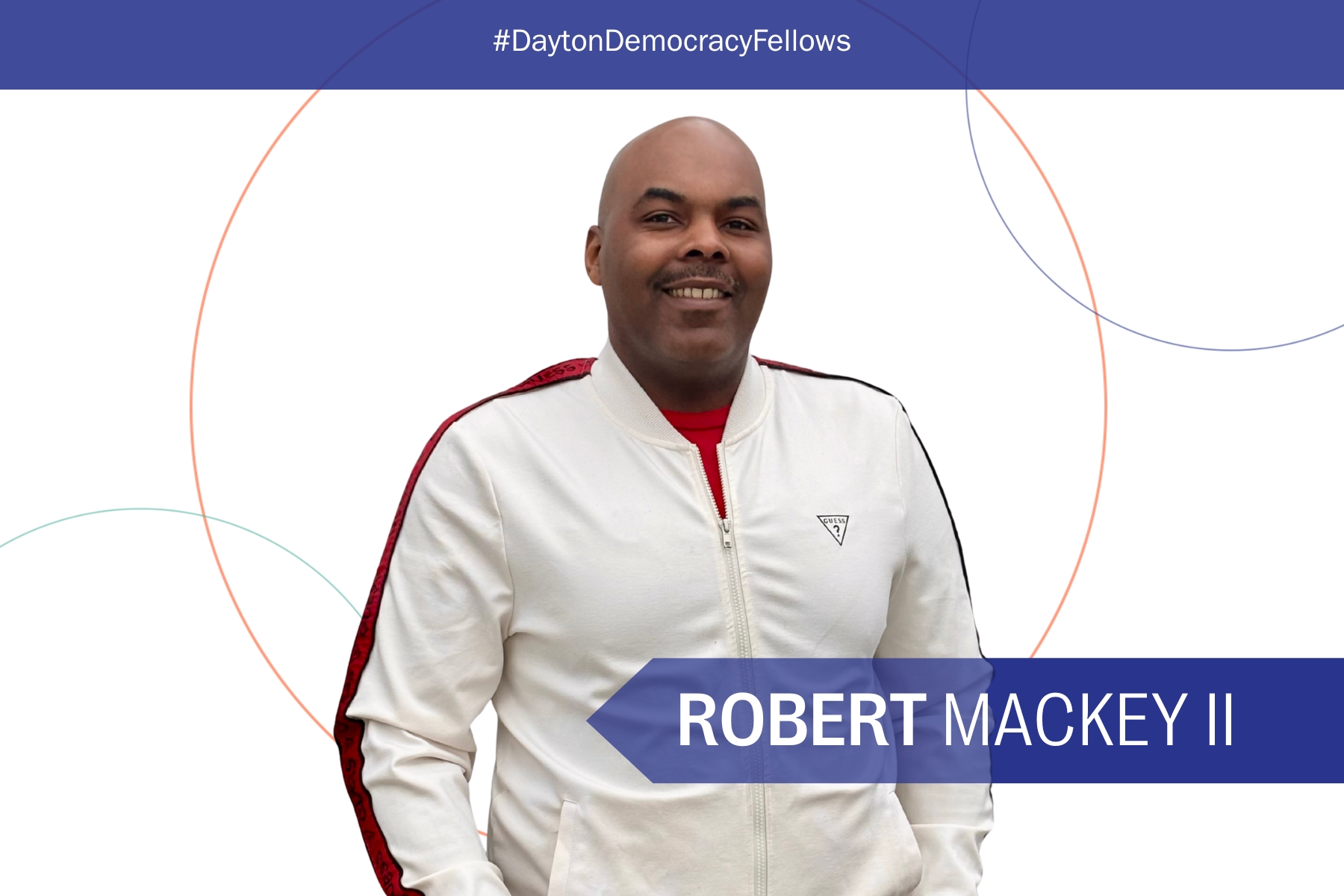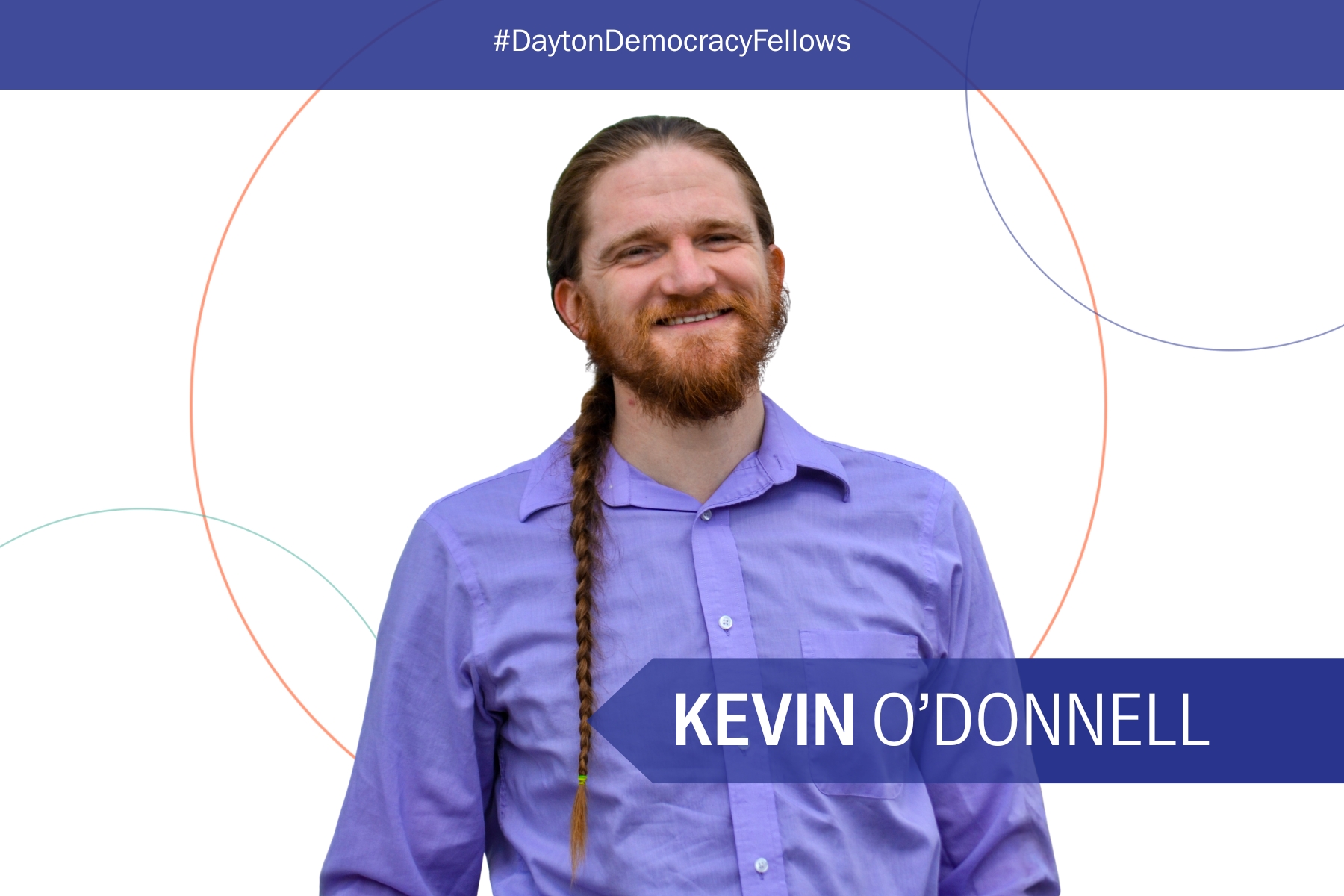Building Stronger Communities through Democracy
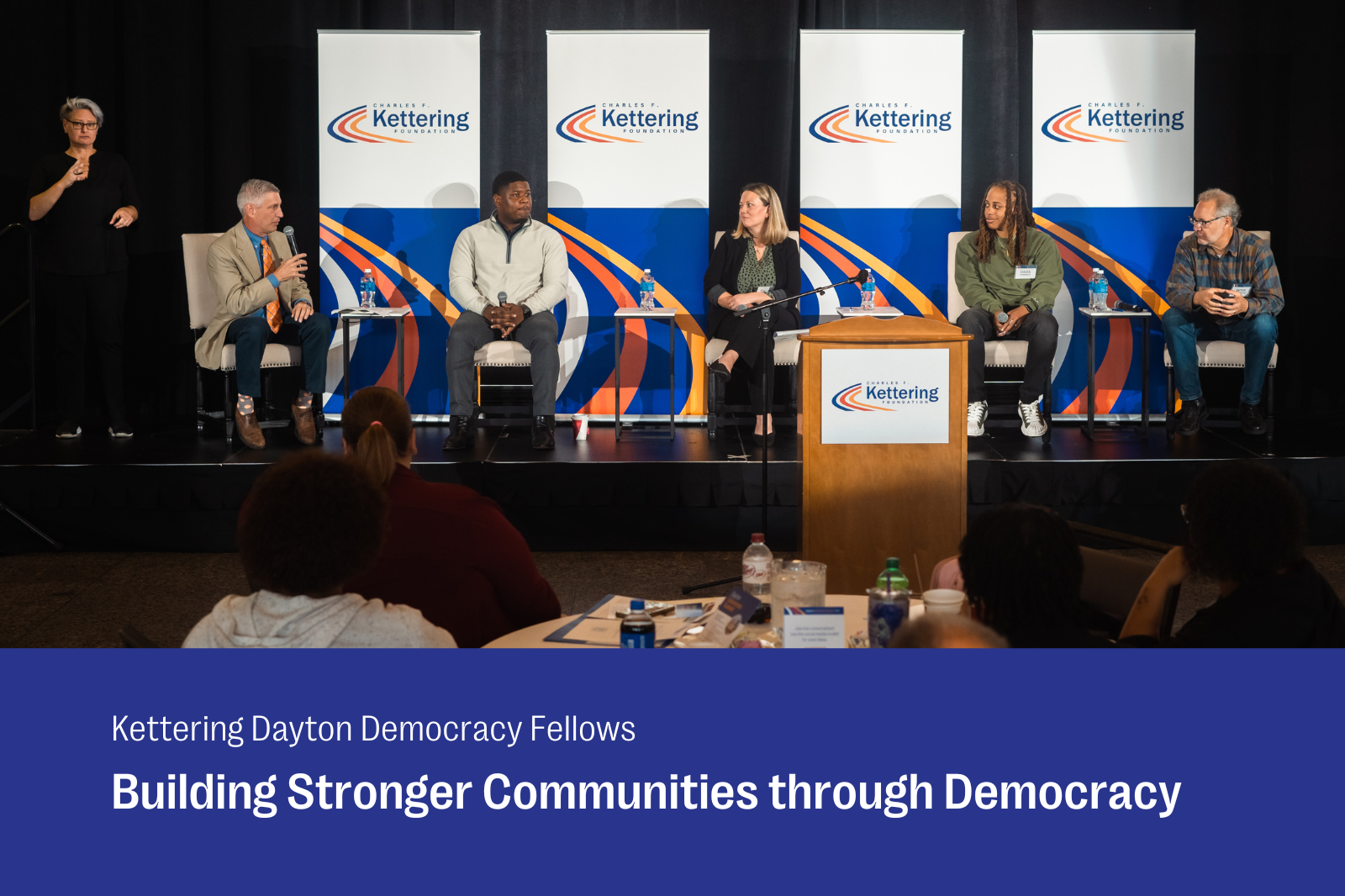
This article is part of a series of stories covering Kettering’s Dayton Democracy Summit. The event was held on September 20 at Sinclair College in Dayton, Ohio.
In its simplest definition, democracy is about people coming together to shape their lives, communities, and world. Inclusive democracy means that all people belong, everyone is equal, and everyone should have a say. In the panel discussion, What’s Democracy Got to Do with Our Lives?, panelists shared personal stories about the work of democracy in the Dayton community. The panel included four Dayton Democracy Fellows—Peter Benkendorf, Daj’za Demmings, Fabrice Juin, and Jenny McDermott—and was moderated by David Bodary, chair of the Communication Department at Sinclair College.
Democracy Isn’t a Spectator Sport
Bodary grounded the discussion in the idea that democracy is not a spectator sport. We don’t get to sit on the sidelines and watch; we must practice, perform, and be active to shape the kind of democracy we want.
When Demmings first got involved in her community, she didn’t really know what democracy was. Her experience with an after-school program addressing a local water issue helped her to understand that it wasn’t just about solving immediate problems but about people coming together to advocate for their needs. Her takeaway was, “Democracy means for the people.” McDermott found hope and inspiration when she volunteered with Vote Dayton during the 2008 presidential campaign. She saw the more challenging side of democracy while working with families in the child welfare system. If democracy is about self-determination and choice, how is that possible when many lack both of those?
Juin is from a family of Haitian immigrants who have worked hard to engage in the American dream. He acknowledged that the work of democracy is taxing, can be demoralizing, and is often just the efforts of a few individuals. However, it doesn’t have to be when the community stands together and for itself. These examples all highlight the need for community well-being, an idea that Benkendorf believes should be the primary way to measure the success of communities. Focusing on economic measures alone doesn’t capture the true state of community.
Coming Together to Make Change
When asked about examples of communities coming together, each panelist offered insights into what works. Juin highlighted the importance of leadership and partnerships, noting that his executive director at the Institute for Livable and Equitable Communities at the Miami Valley Regional Planning Commission agreed to explore ways to decentralize power and allow communities to make decisions relevant to their lives. Benkendorf and Demmings emphasized the value of everyday conversations, whether to help people learn to advocate for their own needs or to help communities with stark differences find commonality through their shared humanity. McDermott mentioned how the Springfield, Ohio, community is coming together to support the Haitian immigrants who are under attack. This is important and necessary work, but “if we were to be more proactive in rallying around vulnerable communities—instead of reactive—it would make a difference.” Bodary pointed out that the action of voting isn’t just about what the individual wants, but that it also impacts what the community needs.
Challenges in Achieving an Inclusive Democracy
The panelists were clear about the challenges facing democracy today. All four agreed that misinformation and disinformation are at work to divide communities. Communities need to find ways to foster a sense of belonging, just like the Dayton Democracy Summit is doing. Juin argued for “a paradigm shift in how we approach serving communities.” By catering to the needs of the most vulnerable, we elevate everyone. He pointed out that power structures often exclude the very people impacted by decisions, and more balance is needed between experts and community members. Benkendorf agreed, saying that we must look to communities to drive the change, not institutions and the usual suspects.
The Role of Community Engagement
If communities are going to drive the change, then community engagement is vital. In fact, it is the work of democracy. According to Juin, community engagement starts with having intentional conversations, with the right people, that lead to action. Demmings agreed, saying that it also involves helping people see that they can create change and have the power. McDermott emphasized the role of listening to community members and not simply parachuting in with a solution. Benkendorf expanded on these ideas by advocating for asset-based community development. He said, “Ask community members what they are good at and what brings them joy. Then, support them in finding ways to be engaged.” Juin provided advice for the next step: “Stand behind them to provide support when they falter, not in front of them.”
The Path Forward
The final takeaway from the panel was clear: Democracy is about empowering people, fostering community, and creating spaces where every voice can be heard. It is not divorced from our everyday lives, but a vital part.
